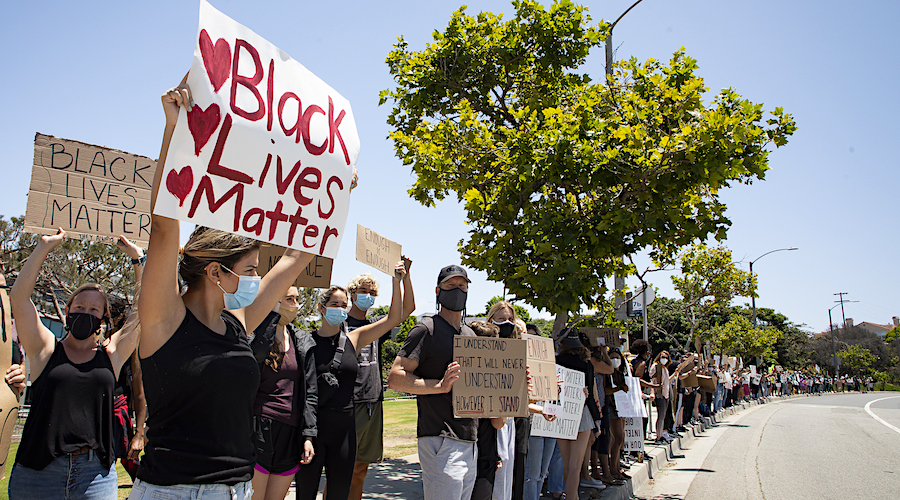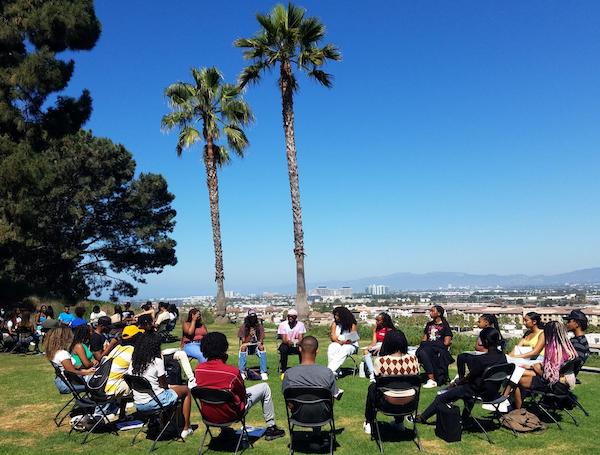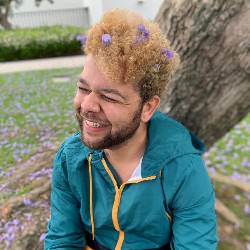
The LMU TRHT Alliance™ provides a hub for campus and community partners to transform the culture and climate of institutions by catalyzing equitable, reciprocal, and authentic relationships through Ignatian reflection, intergroup dialogue, and © Rx. Racial Healing Circles, which we call Story Circles.
Vision
Inspired by our university mission, the Truth, Racial Healing and Transformation™ (TRHT) Alliance at Loyola Marymount University will transform our campus culture through humanization, dialogue, and belongingness.
Goals
- Serve as a hub to coordinate cross-campus efforts to address instances of impact or harm using a restorative framework:
- Develop a collective understanding among all constituents of the need to prioritize proactive relationship-building as a foundation for making generative conflict possible.
- Leverage the dual appointment of the TRHT Alliance director as University Ombuds to educate the campus community about how to address conflict in supported ways that strengthen relationships and improve campus climate.
- Continue to build capacity among faculty, staff, and students to develop related skills and competencies.
- More transparently articulate connections between the TRHT framework and our University's mission:
- Express the relationship between our commitment to educating the whole person and the power of self-reflective storytelling to deepen empathy and understanding.
- Foster interfaith work as one fruitful pathway toward increasing a sense of belonging among all community members.
- Deepen and sustain relationships grounded in mutuality and reciprocity, informed by the TRHT framework:
- Reckon with the historical role of the Catholic Church in promoting colonialism, slavery, and other racist practices, especially the harm inflicted upon the indigenous peoples of the land our campus occupies.
- Nurture partnerships with entities on campus whose work aligns with the TRHT framework.
- Nurture partnerships with community-based organizations whose work aligns with the TRHT framework.
The TRHT™ Alliance offers facilitated circles and other workshops by request for departments, units, and other groups at LMU. We also provide capacity-building opportunities for faculty, staff, and students interested in building their capacity to engage in dialogue across differences to facilitate spaces that catalyze growth, change, and a sense of belonging among all community members.
Story Circles
The signature practice of the TRHT national network are Rx Racial Healing Circles, which we call story circles at LMU. Story circles provide opportunities for participants to self-reflect on the experiences that have shaped them and to be witnessed in sharing their experiences with others through a process where they are supported in engaging authentically.

“As Sharon G. Mijares reminds us in her article ‘A Brief History of Circle,’ evidence of ritual circle gatherings for healing dates as far back as 300,000 years ago. People have been gathering in purposeful circles for a very long time. Many Indigenous groups still gather in circles. Examples are the people of First Nations in the Americas and the Maasai people in Kenya. The Stonehenge monument and the one thousand Senegambia stone circles of West Africa (nine of which have been inscribed on the World Heritage list of the United Nations Educational, Scientific, and Cultural Organization) reflect a reverence for the circle formation that spans two millennia…The use of a human circle formation for peacemaking and healing is deeply rooted in traditional practices of Indigenous people the world over. The past thirty years have witnessed a resurgence of the value of circles for restoration and healing in many settings."
-- From "Rx Racial Healing: A Guide to Embracing Our Humanity," by Gail C. Christopher, pp. 97–98.
Workshops
The TRHT Alliance at LMU emphasizes building the capacity to engage in community building, communication, and conflict in ways that are generative and that ultimately strengthen relationships and our community. Workshops that focus on a range of related skills can be tailored to the needs of specific groups.
Framework
The TRHT framework helps communities heal and produce actionable change. From the beginning, TRHT was designed by the community and through collaboration. Community-led collaboration – that is cross-racial, intergenerational, and cross-sector – remains the centerpiece of all TRHT efforts.
Foundational Areas
All TRHT communities address the following foundational areas:
Narrative Change
False narratives hamper our ability to understand our world and relationships as they are, leading us to create and reinforce untrue perceptions. A complete story needs to be presented in school curricula, news media, movies, television, radio, digital media, gaming platforms, cultural institutions, and in the personal histories told within families. This process influences our perspectives, perceptions, behaviors, and interactions with one another so that we can more effectively create change.
Racial Healing and Relationship Building
We are focusing on ways for all of us to heal from the wounds of the past, to build mutually respectful relationships across racial and ethnic lines that honor and value each person’s humanity, and to build trusting intergenerational and diverse community relationships that better reflect our shared humanity.
Pillars
Communities also choose to pursue work around one or all of the following pillars:
Separation
We are examining and finding ways to address segregation, colonization, and concentrated poverty in neighborhoods to ensure equitable access to health, education, and jobs.
Law
Review discriminatory civil and criminal laws and the public policies that result from them and recommend solutions that will produce a just application of the law.
Economy
Studying structured inequality and barriers to economic opportunities and recommending approaches to create an equitable society.
Truth, Racial Healing, and Transformation™
- TRHT Philosophy & Framework
- We Hold These Truths: Dismantling Racial Hierarchies; Building Equitable Communities
- © Rx Racial Healing Circles
- National Day of Racial Healing
- TRHT Campus Centers' Projects
Restorative Culture
- Southern CA Restorative Justice Consortium
- Gathering Power
- Conflict Transformation and Restorative Justice
- In It Together – A Framework for Conflict Transformation
- Body Centered Transformation
- Accountable Communities Consortium
- Creating a Restorative Campus
- Developing a More Restorative Pedagogy
Antiracism
- LMU’s Antiracism Project
- Mission & Ministry’s Compiled Resources
- Characteristics of White Supremacy Culture
- AWARE-LA
- "The Benefits of Collective Action" by Heather McGhee
Our Partners
- The Restorative Justice Project @ LMU’s Center for Urban Resilience
- CSJ Center for Reconciliation and Justice
- LMU Restore
- Inclusive History and Images Project
- Family of Schools
- Pam Rector Center for Service and Action
- Intercultural Facilitators Program
- Center for Religion & Spirituality
- Psychology Applied Research Center (PARC)
Jamal Epperson

they/them/their
Assistant Director of DEI Initiatives and Truth, Racial Healing, and Transformation™ (TRHT) Center Alliance
(310) 258-7966 | [email protected]
Jamal Epperson directs the Truth, Racial Healing, and Transformation (TRHT) Center Alliance at LMU, which is part of a national network of TRHT campus centers hosted by the American Association of Colleges and Universities. They previously served as a Resident Director in the Student Housing Office is a current graduate student at the University of San Francisco's Doctorate of Education International Multicultural Education program with a concentration in Human Rights Education where they focused on transformative restorative justice in higher education. Mx. Epperson is an abolitionist and transformative restorative justice facilitator who centers love in cultivating healthy relationships that promote liberation and creation. Through their work in BFSA and the LGBTQ+ FSN Jamal co-founded the Mixed-Roots Collective to create space for multiracial and transracially adopted individuals to have a space for liberation, healing, and love.